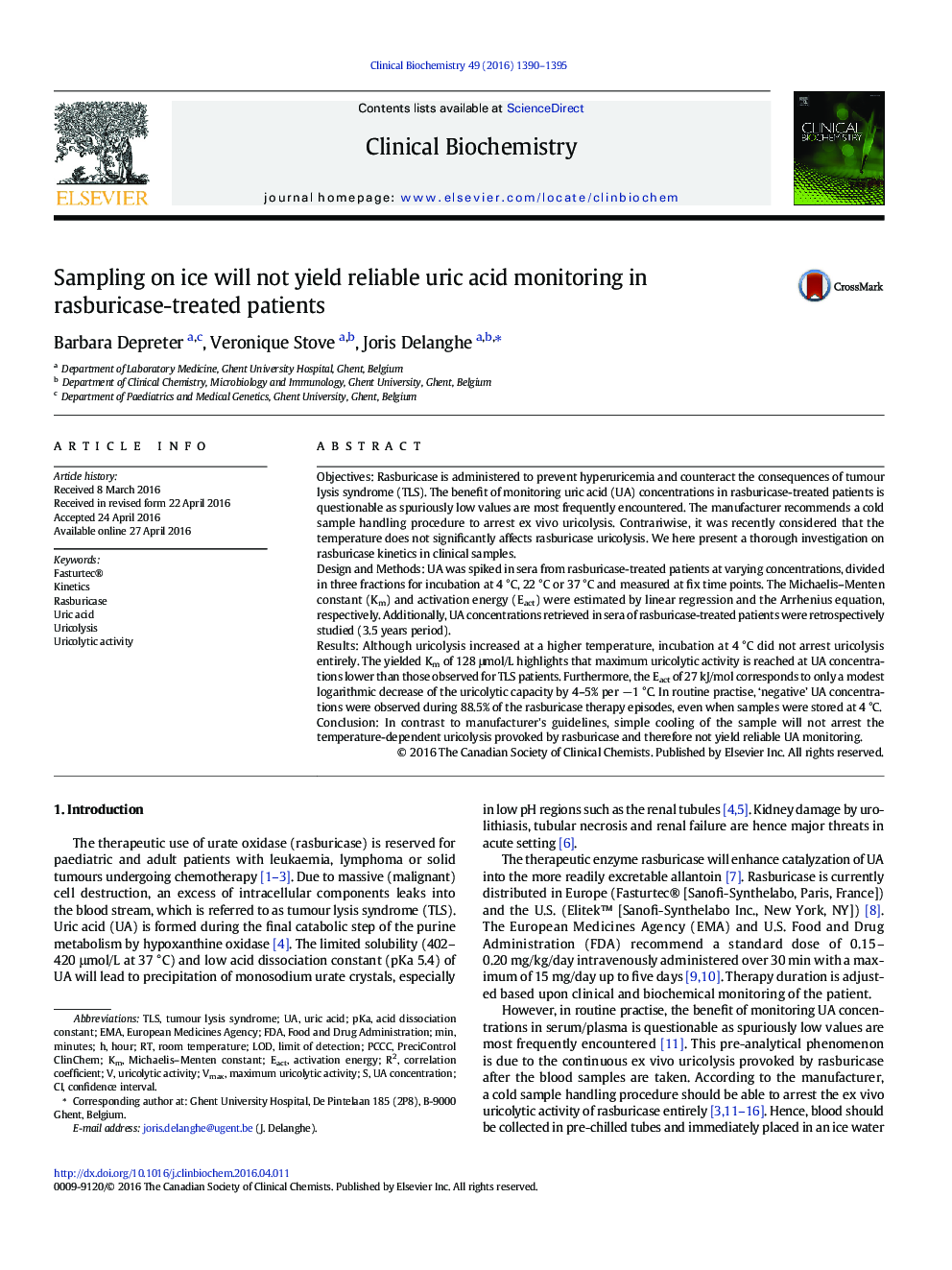| Article ID | Journal | Published Year | Pages | File Type |
|---|---|---|---|---|
| 5509973 | Clinical Biochemistry | 2016 | 6 Pages |
â¢Serum cooling will not arrest uricolysis in the presence of rasburicase.â¢Routinely monitored rasburicase-treated patients present with negative UA concentrations.â¢Rasburicase's uricolytic capacity knows a modest logarithmic decrease of 4-5% per â 1 °C.
Objectives: Rasburicase is administered to prevent hyperuricemia and counteract the consequences of tumour lysis syndrome (TLS). The benefit of monitoring uric acid (UA) concentrations in rasburicase-treated patients is questionable as spuriously low values are most frequently encountered. The manufacturer recommends a cold sample handling procedure to arrest ex vivo uricolysis. Contrariwise, it was recently considered that the temperature does not significantly affects rasburicase uricolysis. We here present a thorough investigation on rasburicase kinetics in clinical samples.Design and Methods: UA was spiked in sera from rasburicase-treated patients at varying concentrations, divided in three fractions for incubation at 4 °C, 22 °C or 37 °C and measured at fix time points. The Michaelis-Menten constant (Km) and activation energy (Eact) were estimated by linear regression and the Arrhenius equation, respectively. Additionally, UA concentrations retrieved in sera of rasburicase-treated patients were retrospectively studied (3.5 years period).Results: Although uricolysis increased at a higher temperature, incubation at 4 °C did not arrest uricolysis entirely. The yielded Km of 128 μmol/L highlights that maximum uricolytic activity is reached at UA concentrations lower than those observed for TLS patients. Furthermore, the Eact of 27 kJ/mol corresponds to only a modest logarithmic decrease of the uricolytic capacity by 4-5% per â1 °C. In routine practise, 'negative' UA concentrations were observed during 88.5% of the rasburicase therapy episodes, even when samples were stored at 4 °C.Conclusion: In contrast to manufacturer's guidelines, simple cooling of the sample will not arrest the temperature-dependent uricolysis provoked by rasburicase and therefore not yield reliable UA monitoring.
